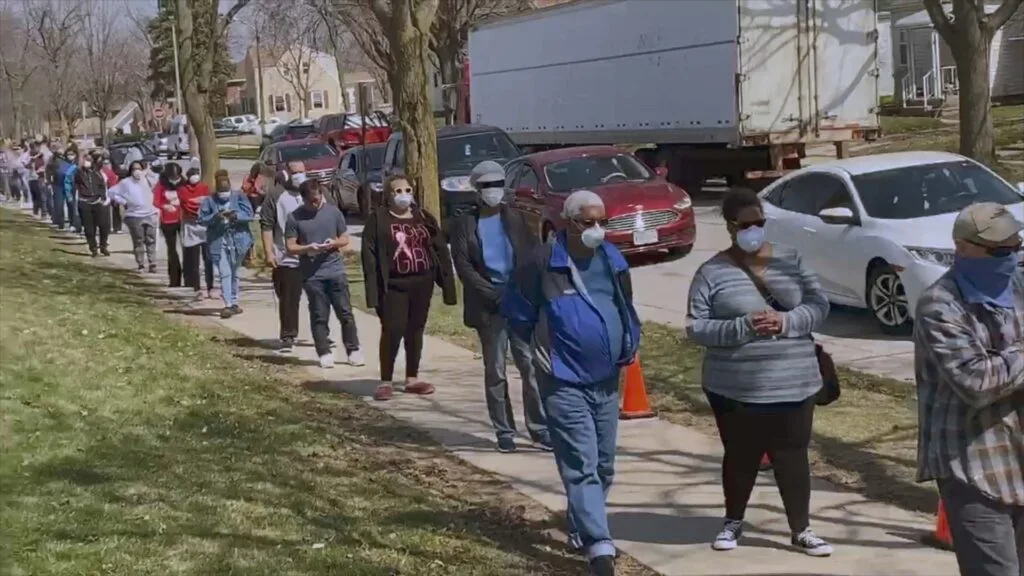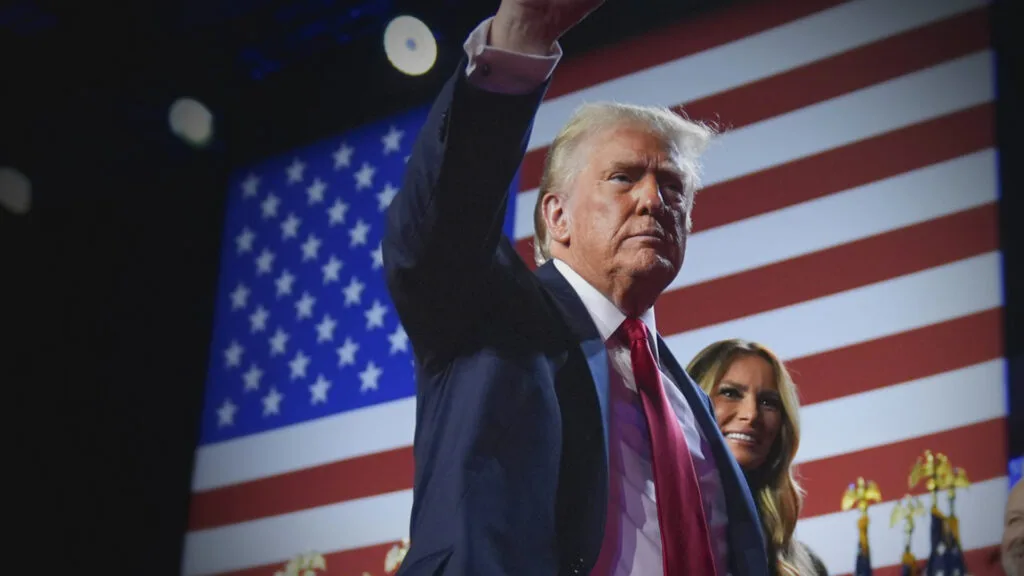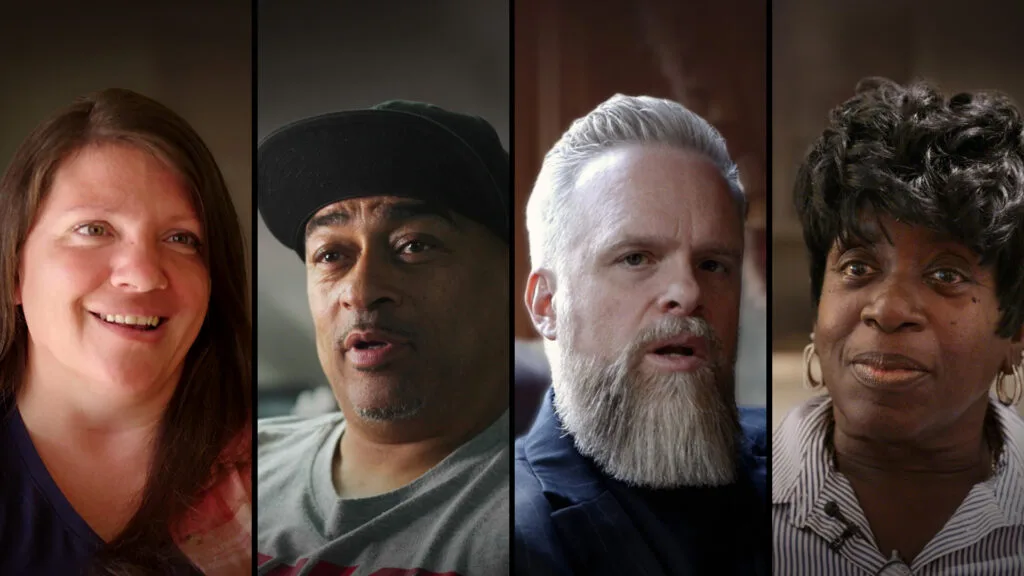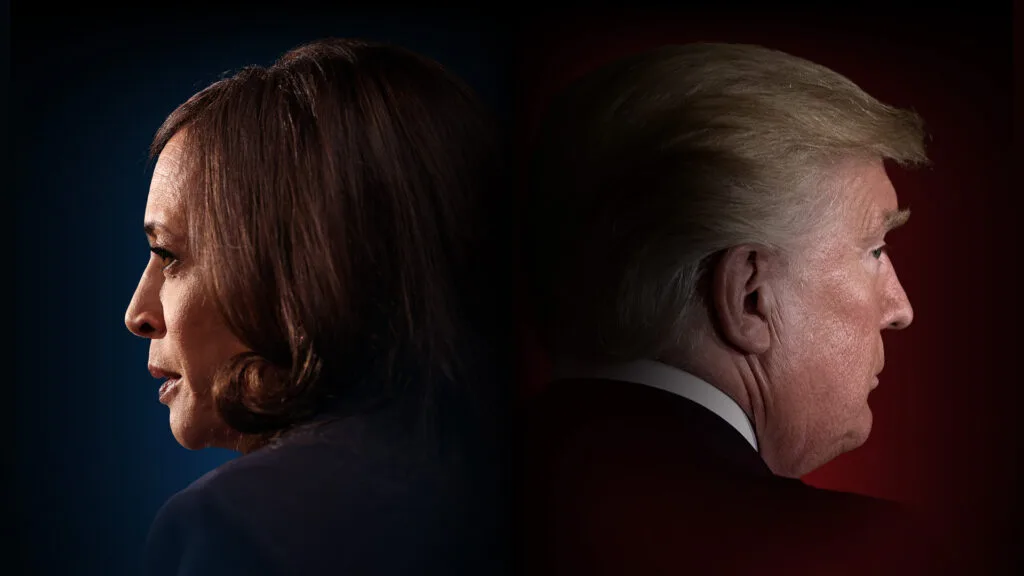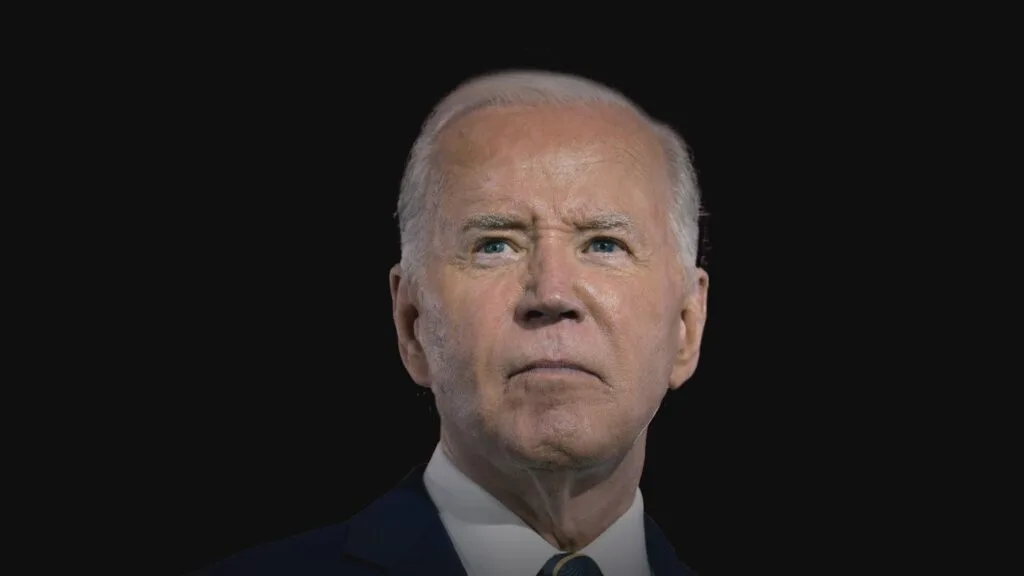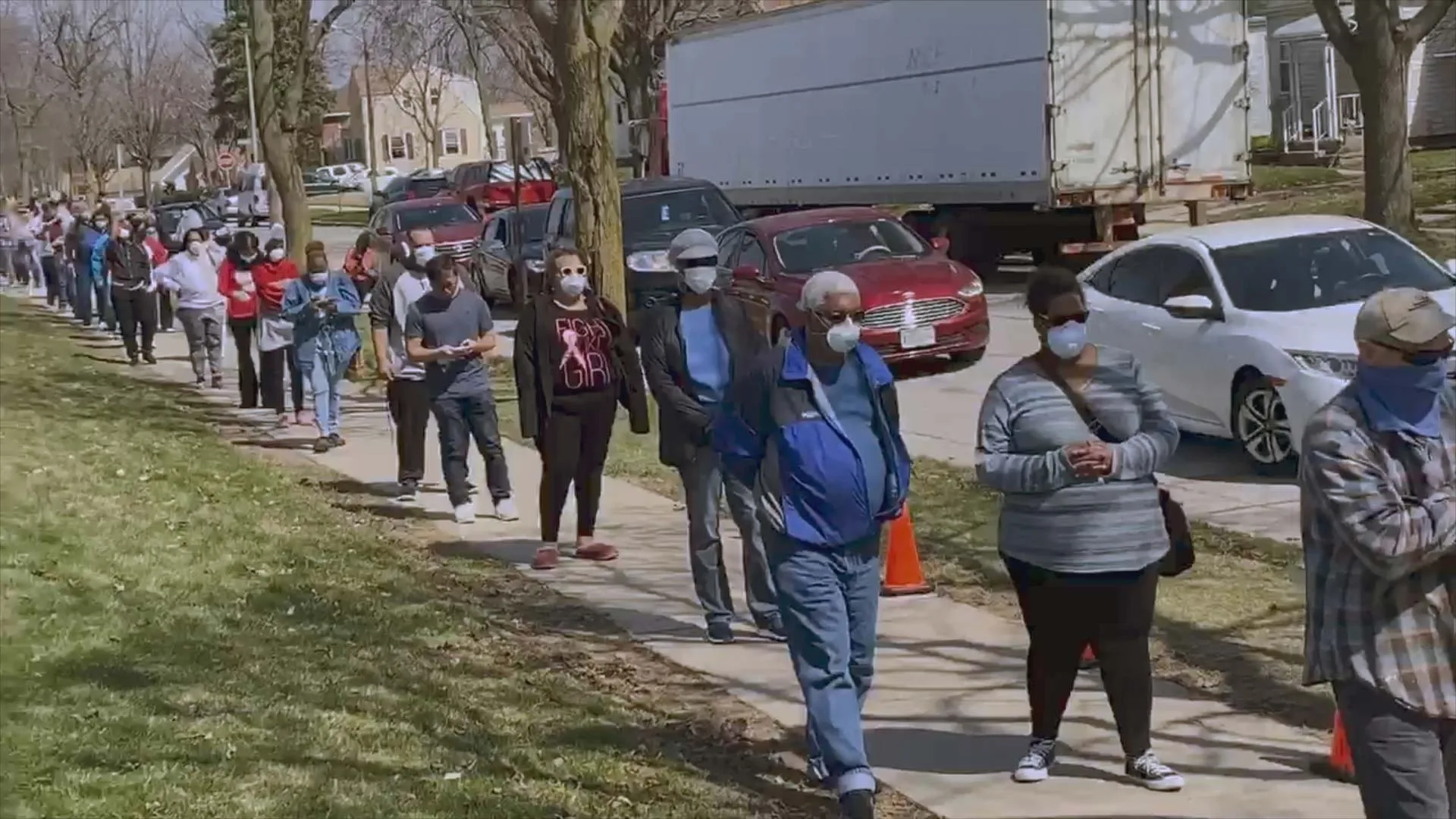What the Wisconsin Supreme Court Election Could Mean for the 2024 Election, Gerrymandered Maps and Abortion
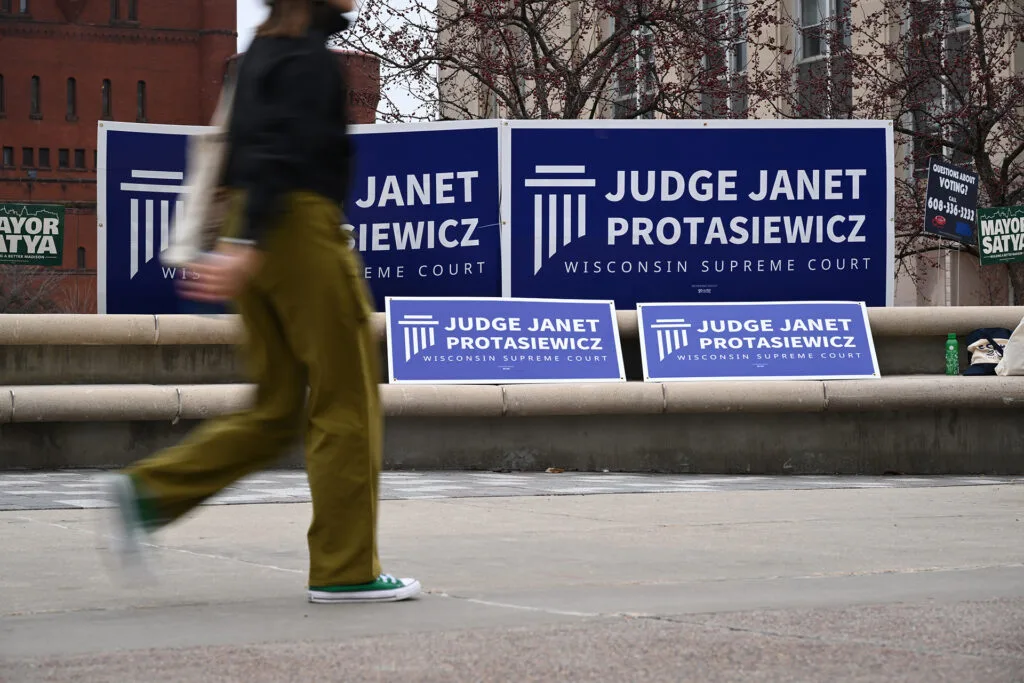
April 7, 2023
Share
Voters in the critical swing state of Wisconsin this week ended the 15-year-long conservative majority on the State Supreme Court in an election that experts believe could impact the 2024 national election, as well as other major issues playing out locally and around the country.
The dramatic change in the balance of power came with the defeat of Republican-backed former state Supreme Court justice Daniel Kelly by Milwaukee County Circuit Court Judge Janet Protasiewicz, who’d been endorsed by Democrats.
“The election of Janet Protasiewicz changes the ideological makeup of the court,” Howard Schweber, a political science and law professor at the University of Wisconsin-Madison, told FRONTLINE. Schweber said the results of Tuesday’s election — widely described as the most expensive American judicial election ever — would mean “a fundamental shift in direction” for Wisconsin’s highest court.
The role of Wisconsin as a bellwether and battleground — and a reflection of the country’s deep partisan divide — was explored in the award winning 2020 FRONTLINE documentary Whose Vote Counts. The film, a collaboration with Columbia Journalism Investigations and reporters from the USA Today Network, focused on allegations of voter disenfranchisement and how unfounded claims of extensive voter fraud entered the political mainstream. It most closely examined the voting and political and legal fights around the 2020 primary election in Wisconsin and the lead up to the presidential vote.
“I started focusing on the state because of its pivotal and deeply partisan nature—it’s split down the middle between Republicans and Democrats, and it gave Donald Trump the presidency in 2016 by the exceedingly thin margin of 22,000 votes,” now dean of Columbia Journalism School and FRONTLINE correspondent Jelani Cobb says in the documentary. “It’s a microcosm of America these days.”
The judicial election comes at a moment when “the Wisconsin Supreme Court is poised to confront a range of hot-button issues, including abortion rights and gerrymandering,” Robert Yablon, an associate professor at the University of Wisconsin Law School, told FRONTLINE. Yablon said the court’s ideological shift matters because of the prominent role the court plays in Wisconsin in resolving these major issues.
Here, FRONTLINE takes a closer look at the potential state- and national-level ramifications of Tuesday’s judicial election.
The 2024 Election
The Wisconsin Supreme Court will likely have to weigh in on election rules for the 2024 election, as it did for the 2020 election.
Back in 2020, Democrats fought to make absentee voting easier in Wisconsin amid health concerns due to the COVID-19 pandemic — an effort that was explored in Whose Vote Counts. They were hoping to loosen requirements like voter ID and witness signatures, both of which have historically created barriers to voting, particularly for people of color. But leading up to the election, the U.S. Supreme Court would not intercede to extend mail-in balloting and Wisconsin’s highest court rejected Democratic efforts to postpone the election amid the pandemic.
“It seems less likely that the Wisconsin Supreme Court going forward would be inclined to issue decisions that would take a restrictive view of voting rights,” said Yablon, who is faculty co-director of the school’s State Democracy Research Initiative, a research hub on issues related to democracy, government and public law in states across the country.
Gerrymandering
Another critical issue Kelly and Protasiewicz debated during their campaigns was the use of gerrymandered legislative maps, which have helped cement Republicans’ control of the Wisconsin legislature for over a decade. An analysis published in April 2022 said Democrats would need a “double-digit statewide swing” in order to win control of the Wisconsin State Assembly. Last year, the Wisconsin Supreme Court decided to use Republican-drawn maps rather than ones submitted by Democratic Gov. Tony Evers. Those maps “largely perpetuated the gerrymander” that the state has had since 2011, Yablon said.
Protasiewicz has openly criticized these maps, calling them “rigged” and “unfair,” and has indicated a willingness to revisit that 2022 ruling.
Yablon described Wisconsin’s maps as “one of the most extreme gerrymanders in the country.” He added, “(Protasiewicz) will take office in August, and at that point, I expect that we’ll quickly see some new cases get filed that challenge the current maps and that ask the court to create newer, fairer maps.”
Both Schweber and Yablon pointed out that new maps could affect the results of the 2024 election. David Canon, a political science professor at UW-Madison, told FRONTLINE that he thought it would be difficult to have a court ruling on a new set of maps in time for next year’s election. But Yablon said that, while it would be a “fairly expeditious timeline,” it was “not unreasonable.”
Wisconsin’s 1849 Abortion Law
The outcome of Tuesday’s state Supreme Court election is also expected to affect how the court rules on a legal challenge to the state’s 1849 law banning abortion, which went into effect after the U.S. Supreme Court overturned Roe v. Wade last summer. A lawsuit that Democrats filed last year against the ban will be argued at the circuit court level in May and will likely reach Wisconsin’s highest court in a few months.
Neither Protasiewicz nor Kelly would say how they’d rule on the issue during their campaigns. However, Protasiewicz established her personal support for abortion rights during her campaign and was endorsed by several pro-abortion rights groups, whereas Kelly was endorsed by anti-abortion groups, such as Wisconsin Right to Life, Wisconsin Family Action and Pro-Life Wisconsin.
All the experts who spoke to FRONTLINE said they believe it’s likely that the 1849 law will be struck down with Protasiewicz on the bench. But Schweber said that the Republican-controlled state legislature could try to “test the waters” with other proposed restrictions, leading to “a series of back-and-forths” between the legislature and the now liberal-leaning court. Yablon pointed out that the Democratic governor would be unlikely to sign any of those restrictions into law, and that a repeal of the 1849 ban would likely return the state’s abortion laws to what they were in the Roe era, at least for a while. But in the long-run, Yablon said that abortion will “remain a very high-profile issue” in the state.
“I don’t know how it’ll play out, but it’s pretty clear we won’t end up with [how it was under Roe] — it won’t go back to that status quo,” Canon said. “It’s also clear we won’t end up with the 1840s law. So we’ll end up somewhere in between, but it’s hard to say right now where that’s going to be.”
Watch the full documentary Whose Vote Counts:

Email:
chantelle_lee@wgbh.orgRelated Documentaries
Latest Documentaries
Related Stories
Related Stories
Explore
Policies
Teacher Center
Funding for FRONTLINE is provided through the support of PBS viewers and by the Corporation for Public Broadcasting, with major support from Ford Foundation. Additional funding is provided the Abrams Foundation, Park Foundation, John D. and Catherine T. MacArthur Foundation, Heising-Simons Foundation, and the FRONTLINE Trust, with major support from Jon and Jo Ann Hagler on behalf of the Jon L. Hagler Foundation, and additional support from Koo and Patricia Yuen. FRONTLINE is a registered trademark of WGBH Educational Foundation. Web Site Copyright ©1995-2025 WGBH Educational Foundation. PBS is a 501(c)(3) not-for-profit organization.
